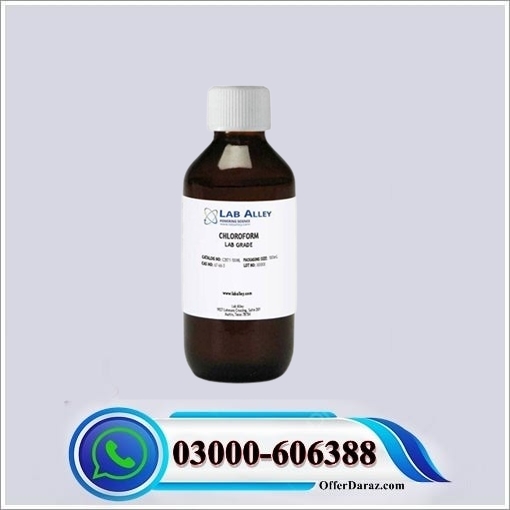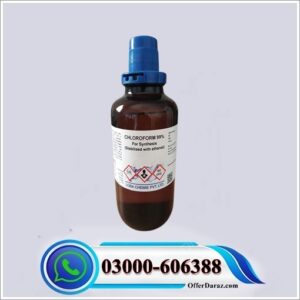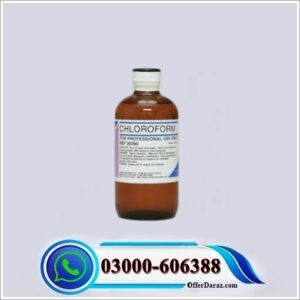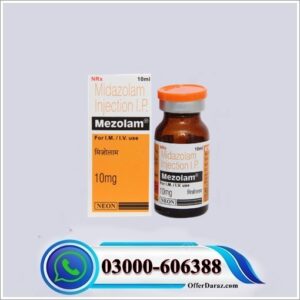Behoshi Ki Dawa Medicine Name
Behoshi Ki Dawa Medicine Name Behoshi ki dawa” is a Hindi term that translates to “medicine for unconsciousness” or “anaesthesia medicine” in English. In medical terms, it refers to anesthesia drugs or medications used to induce unconsciousness during surgical procedures or medical treatments. Some common anesthesia medications include:
- Propofol
- Isoflurane
- Sevoflurane
- Thiopental
- Ketamine
- Midazolam
- Etomidate
- Dexmedetomidine
It’s important to note that the use of anesthesia drugs should be administered by trained medical professionals and should only be used in appropriate medical settings under supervision due to their potential risks and side effects.
Benefits:
“Behoshi ki dawa,” or anesthesia medication, has several benefits in medical settings:
- Pain Control: Anesthesia drugs help control pain by inducing a state of unconsciousness or sedation, which prevents patients from feeling pain during surgical procedures or medical interventions.
- Facilitation of Surgery: Anesthesia medications allow surgeons and medical professionals to perform invasive procedures, surgeries, and treatments without causing discomfort or distress to the patient.
- Muscle Relaxation: Some anesthesia drugs also induce muscle relaxation, which is crucial during surgeries to facilitate easier access to the surgical site and prevent involuntary muscle movements that could interfere with the procedure.
- Rapid Onset and Offset: Many anesthesia drugs have a rapid onset of action, allowing medical professionals to quickly induce anesthesia when needed. They also have relatively short durations of action, which enables patients to recover consciousness and wake up shortly after the procedure is completed.
Overall, anesthesia medications play a crucial role in modern medicine by enabling safe and effective surgical interventions while ensuring patient comfort and well-being throughout the process.
Side Effects:
- Drowsiness and Confusion: Patients may experience drowsiness, confusion, or disorientation as they recover from anesthesia.
- Respiratory Depression: Anesthesia medications can suppress the respiratory drive, leading to shallow breathing or respiratory depression, especially when administered in high doses or in combination with other drugs.
- Hypotension (Low Blood Pressure): Some anesthesia drugs can cause a decrease in blood pressure, leading to hypotension. This effect may require intervention to stabilize blood pressure and ensure adequate tissue perfusion.
- Allergic Reactions: Rarely, patients may experience allergic reactions to anesthesia medications. Which can range from mild skin rashes to severe anaphylaxis requiring immediate medical attention.
- Delayed Recovery: In some cases, patients may experience a delayed recovery from anesthesia, characterized by prolonged drowsiness, confusion. Or difficulty regaining normal cognitive function.
- Postoperative Cognitive Dysfunction (POCD): Elderly patients, in particular, may be at risk for experiencing cognitive dysfunction following anesthesia and surgery. Which can manifest as memory problems, difficulty concentrating, or changes in cognitive function.
- Muscle Pain or Soreness: Some patients may experience muscle pain or soreness after surgery. Which can be attributed to the muscle relaxant effects of certain anesthesia medications.
- Urinary Retention: Anesthesia drugs can interfere with normal bladder function. Leading to urinary retention or difficulty urinating in the postoperative period.
Uses:
- Surgical Procedures: They help ensure patient comfort and safety by preventing pain and involuntary movements during surgery.
- Diagnostic Procedures: Anesthesia drugs may be used to induce sedation or unconsciousness during certain diagnostic procedures, such as endoscopy. Colonoscopy, or imaging studies (e.g., MRI or CT scans) that require the patient to remain still for an extended period.
- Intensive Care: Who require mechanical ventilation or other invasive procedures. Sedation helps manage pain, anxiety, and discomfort in critically ill patients while facilitating medical interventions.
- Pain Management: Some anesthesia medications, such as regional anesthesia techniques (e.g., epidural or spinal anesthesia). Are used to block pain signals from specific regions of the body. Providing targeted pain relief during and after surgery.
- Emergency Situations: Control agitation or delirium, and manage pain associated with traumatic injuries or critical medical conditions.
- Dental Procedures: Anesthesia for procedures such as tooth extractions. Root canal treatments, or oral surgeries.
- Pediatric Care: Diagnostic tests, or medical treatments, taking into account the unique physiological and developmental considerations of children.





Abid Rehman –
Zaber dast result sir